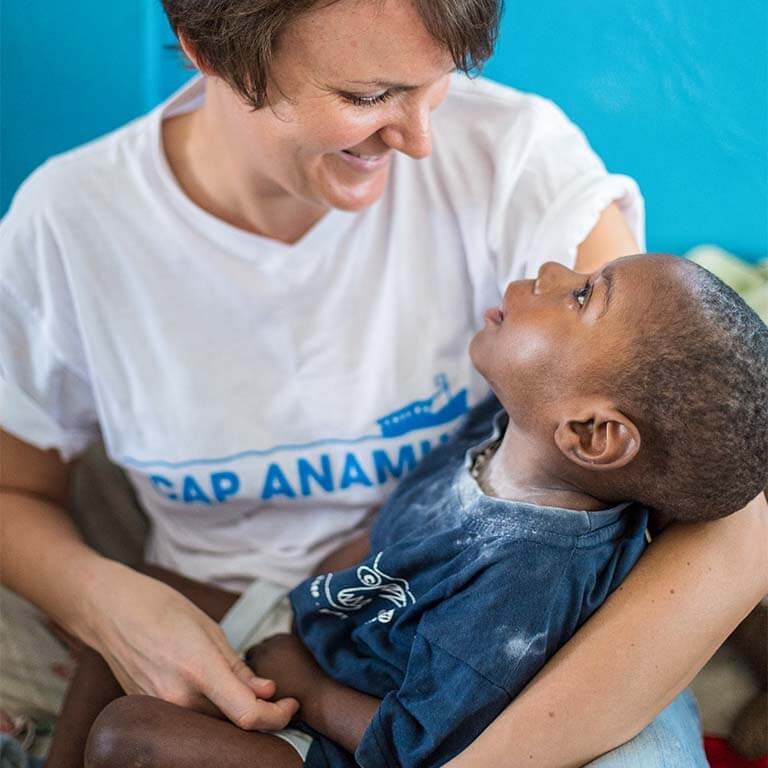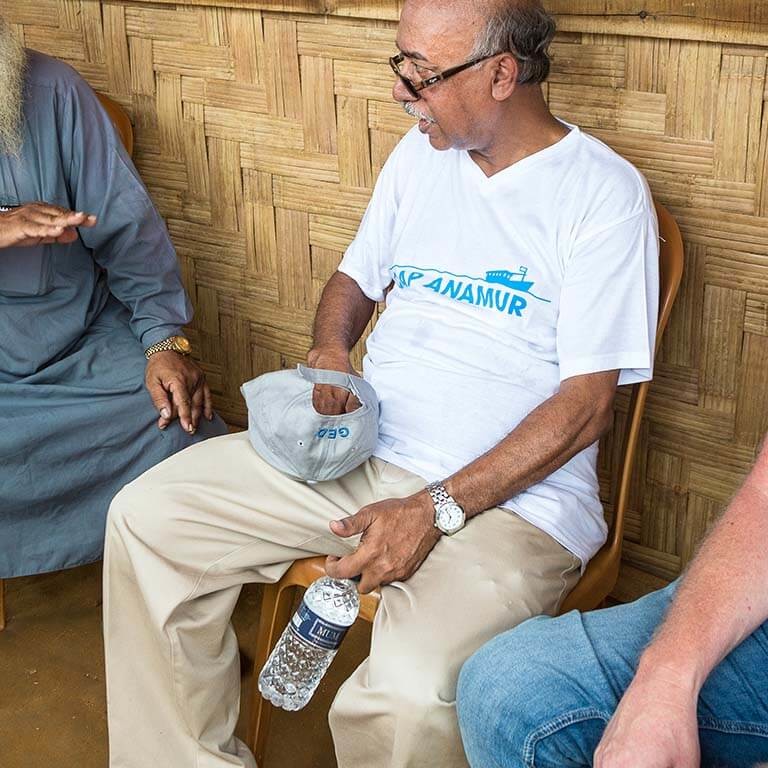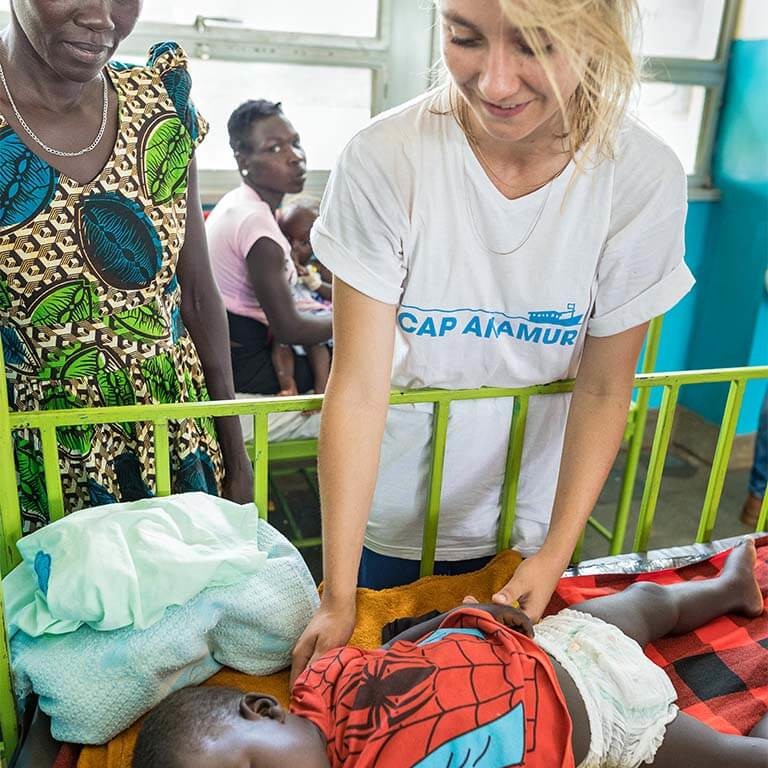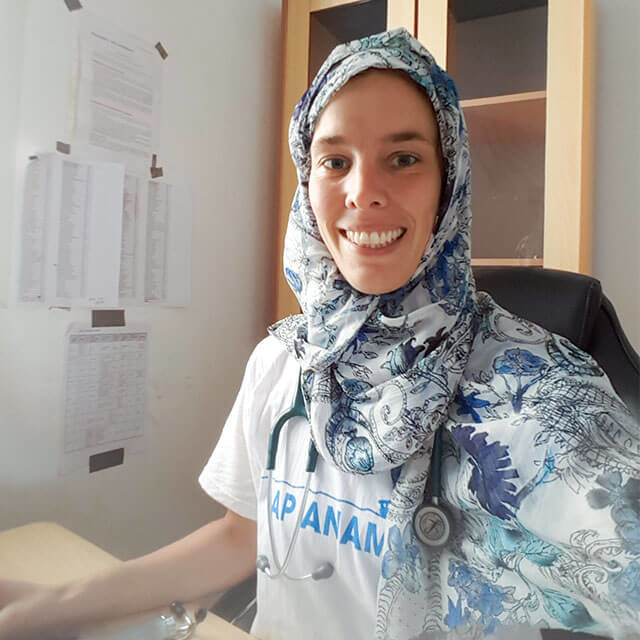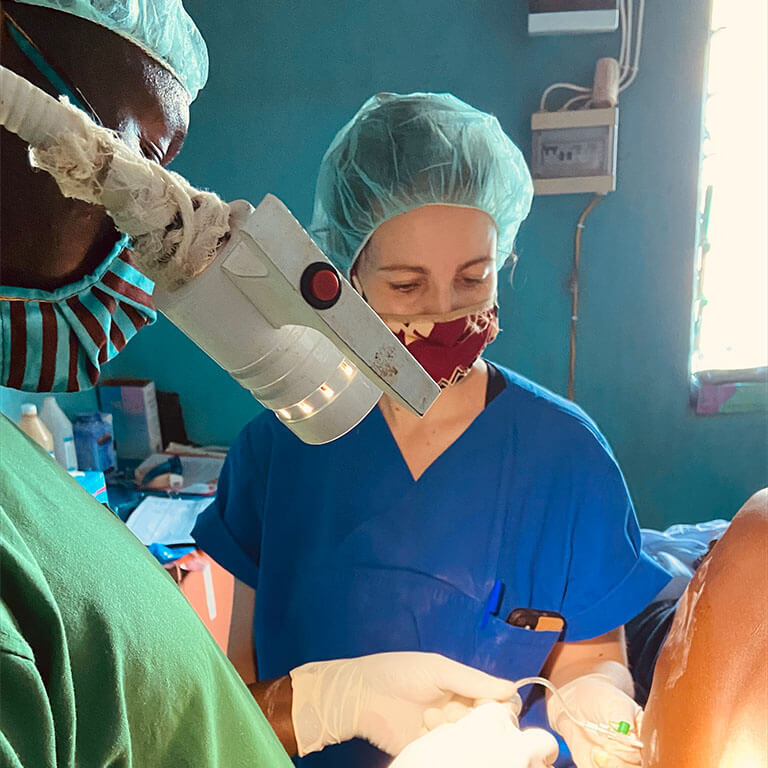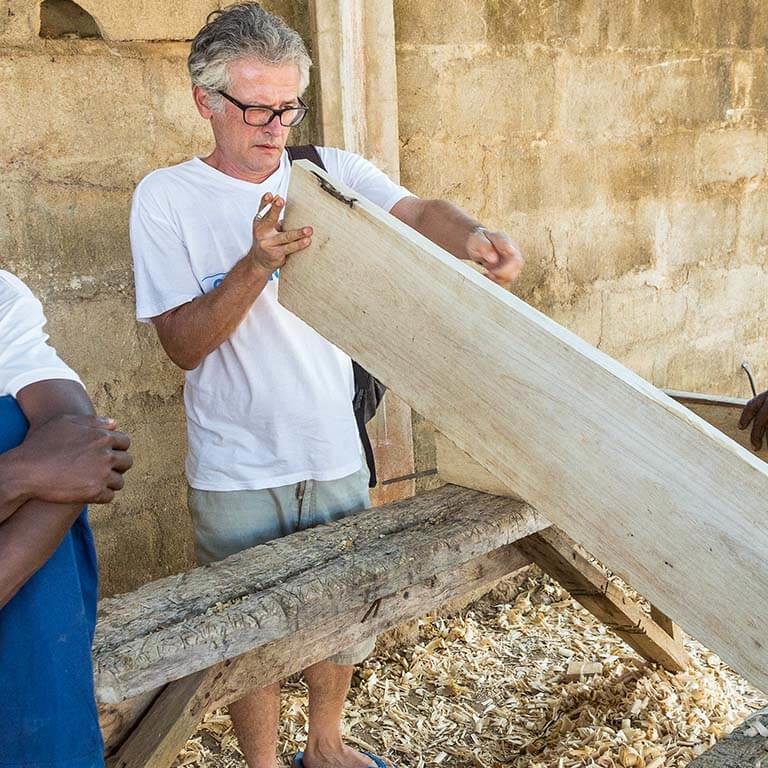Karina Busemann
The laughing children will remain in her memory for a long time.
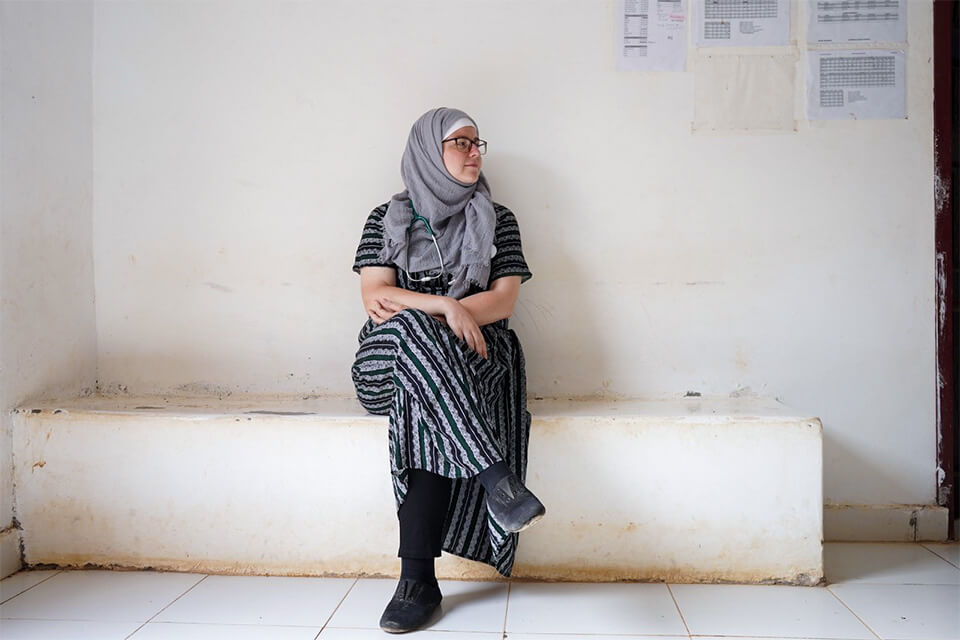
Name
Karina Busemann
Age
29 years old
Profession
Medical nurse
Country of operation
Somaliland
Duration of mission
6 months
My everyday life in the project
First thing in the morning, a coffee – and then it was off to work. The first thing I liked to do was get an overview of the new admissions of the night, and then it was off to morning rounds. Afterwards, there was the morning meeting, where all the news, transfers and complicated cases were discussed. Then it was on to the actual work. Most of the time, there were already a few patients outside the emergency room who wanted to be treated – the team then took care of them. When things were quiet and there were no critical patients to help with, I took care of the medication storage, “paperwork,” or preparing for classes. At noon, we did additional rounds to all critical patients. This was followed up by a lunch break and a shift change at the hospital. After lunch, the colleagues and I drove back to the hospital. I usually then made another small round and checked, if everything was okay. I often helped our midwife with the births, which was always a lot of fun, or I took on the tasks that just came up. There was always something to do, if you had a free minute.
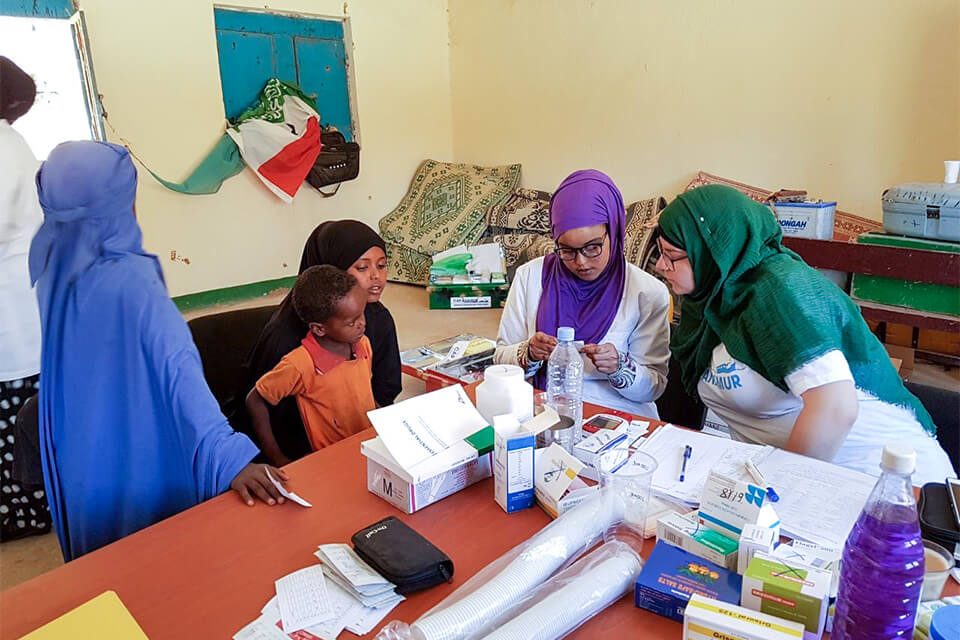
My spare time at the project:
I used the free time in the project mostly for lazing around and reading. Every now and then we went for a walk, either with the Cap Anamur team or with staff from the hospital. For security reasons, we always had to be accompanied by a soldier. Especially in and after the long-awaited rainy season, you could see how much greener everything became, gradually. That impressed me, very much.
I particularly appreciated:
The experiences I was allowed to make have shaped me a lot as a person. The team spirit, whether it was the international team or the national team, where people always supported each other and also accepted each other when they didn’t have the best day.
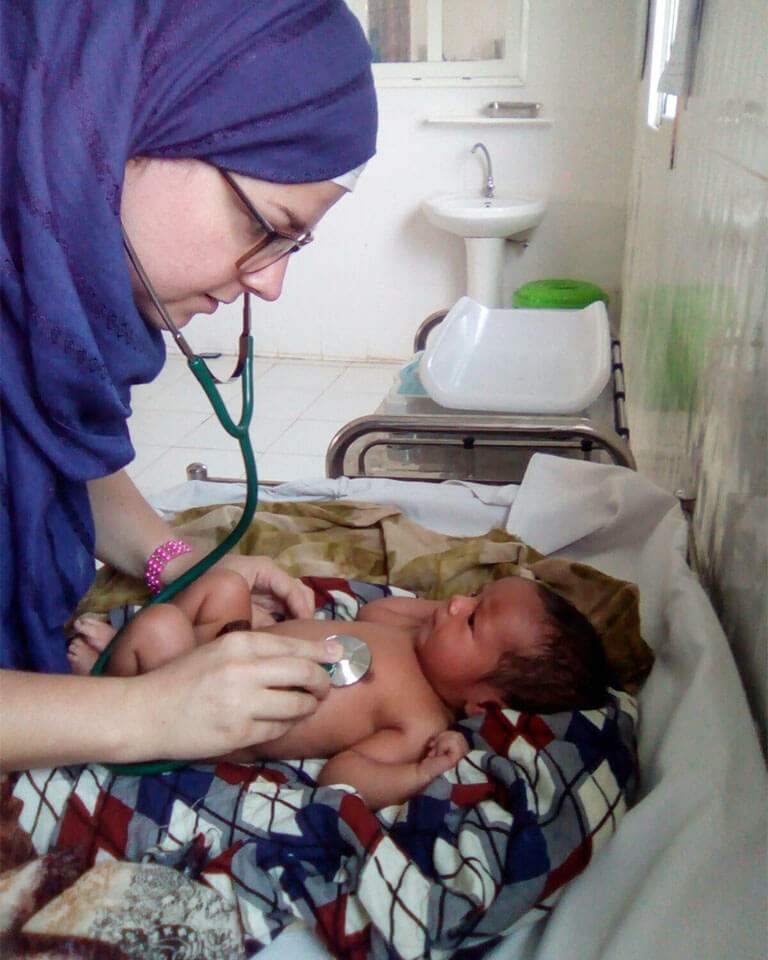
I especcially missed:
My soft mattress at home and cheese.
My plans for the future:
I would love to do many more missions for Cap Anamur. Right now I’m taking a little break to decide what exactly I want to do in the future. I may want to seek a college education. Perhaps in the field of humanitarian aid, to better understand interconnections, and to be able to help in a more targeted way.
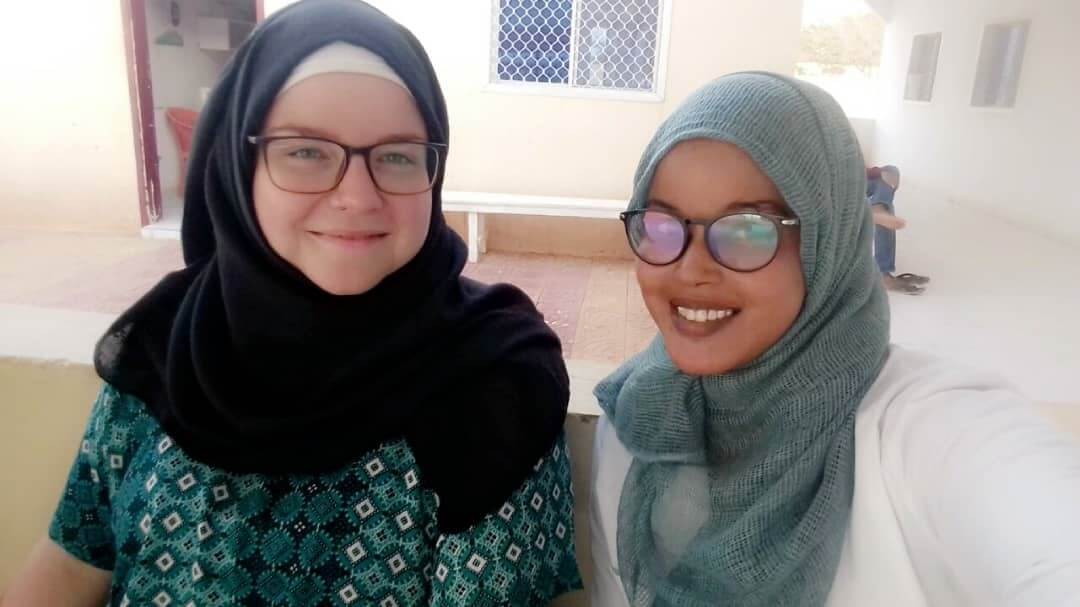
My best memories of my time on the project:
There are so many great memories! If I had to list them all, this short profile would have the format of a book.
Above all, probably, the gratitude of the people. At first Somalilanders make a rather distant impression, but once they get used to you, you notice their affection in small gestures.
I also have especially fond memories of the children who often called my name during my Friday walks. When I looked at them, they hid behind their mommies, and then when I waved, they waved back enthusiastically and laughed.
Through the many conversations with local colleagues, I realized how strong the people and especially the women are in the country. That made a deep impression on me.
Team members in portrait
Thorsten Kirsch works as a nurse for Cap Anamur in Somaliland. His most important piece of luggage for the trip: His guitar. Being involved in areas where his strengths lie and having an incredible number of opportunities for further training - Thorsten has taken a lot away for himself from his assignment.
Pediatric nurse Simone Ross had great experiences in both Sierra Leone and Uganda. Working in the emergency room, in the infant and pediatric wards, training local staff, organizing materials for the laboratory - the varied and diverse tasks were what she appreciated most about her work in the project.
As project coordinator, Shabbir Ahmed takes care of the health care facilities in Bangladesh with which Cap Anamur has cooperation agreements.
Midwife Sarah Schütz worked for six months in the Central African Republic at our hospital in Bossembélé. There she helped deliver many children including twins and premature babies.
Nurse Nele Grapentin's first mission took her to Uganda, but it is by no means to be her last mission for Cap Anamur. The curiosity of the children, the incredible strength of the Ugandan women and such a diverse country - when Nele Grapentin talks about her mission, she quickly goes into raptures.
Mathias Voss, a nurse, spent more than a year working in our hospital in Sudan. His duties included ward, emergency room or maternal-child clinic rounds and continuing education for local staff members.
Above all, the strong women impressed nurse Karina Busemann in Somaliland. If she had to list all the fond memories she has of her time on the project, it would probably make an entire book. The laughing children will remain in her memory for a long time.
Pediatrician Dorothea Kumpf was in Somalia for Cap Anamur. For six months, the young woman worked in a hospital in Somalialand, an area in the north of the country. Especially the open nature of the population remained in her lasting memory.
The nurse Anika Wentz talks about her 6 month assignment in our hospital in the Nuba Mountains in the south of Sudan. There, she experienced many things that impress her to this day.
Andreas Tsukalas works as an architect for Cap Anamur in Somaliland. This is already his sixth deployment.
Afghan-born Faisal Haidari works as a project coordinator for Cap Anamur in Afghanistan. Since 2001, the Afghan, of Tajik descent, has been taking care of the progress of Cap Anamur projects in troubled Afghanistan.


